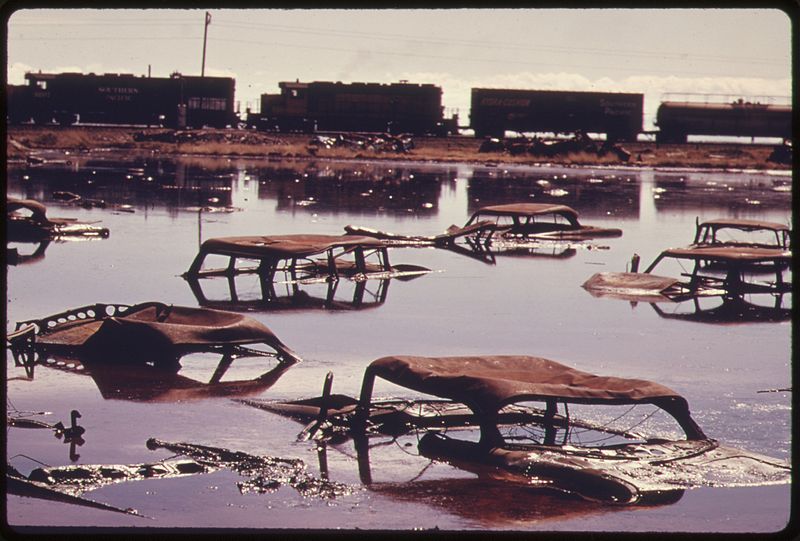The Industrial and Technological Revolutions have, in many ways, been great. We’re not only richer (most of us) materially, but information is so much richer as well. It’s been a mixed victory, however, a Pyrrhic one even, when you factor in environmental damage. From Jeremy Caradonna in the Atlantic:
“But what if we rethink the narrative of progress? What if we believe that the inventions in and after the Industrial Revolution have made some things better and some things worse? What if we adopt a more critical and skeptical attitude toward the values we’ve inherited from the past? Moreover, what if we write environmental factors back in to the story of progress? Suddenly, things begin to seem less rosy. Indeed, in many ways, the ecological crisis of the present day has roots in the Industrial Revolution.
For instance, consider the growth of greenhouse gases (GHGs) in the atmosphere since 1750. Every respectable body that studies climate science, including NASA, the National Atmospheric and Oceanic Administration, and the US Environmental Protection Agency (EPA), has been able to correlate GHG concentrations with the pollutants that machines have been spewing into the atmosphere since the late-18th century. These scientific bodies also correlate GHGs with other human activities, such as the clearing of forests (which releases a lot of carbon dioxide and removes a crucial carbon sink from the planet), and the breeding of methane-farting cows. But fossil fuels are the main culprit (coal, gas, and oil) and account for much of the increase in the parts per million of carbon dioxide in the atmosphere. The main GHGs, to be sure, are carbon dioxide (CO2), methane (CH4), nitrous oxide (N2O), and a few others, many of which can be charted over time by analyzing the chemistry of long-frozen ice cores. More recent GHG levels are identified from direct atmospheric measurements.
What we learn from these scientific analyses is that the Industrial Revolution ushered in a veritable Age of Pollution, which has resulted in filthy cities, toxic industrial sites (and human bodies), contaminated soils, polluted and acidified oceans, and a ‘blanket’ of air pollution that traps heat in the Earth’s atmosphere, which then destabilizes climate systems and ultimately heats the overall surface temperature of the planet.”
Tags: Jeremy Caradonna

